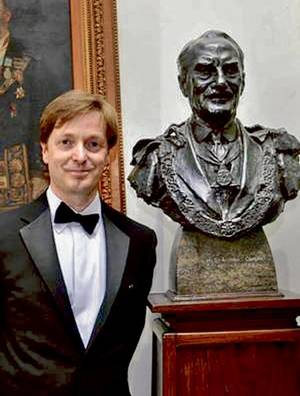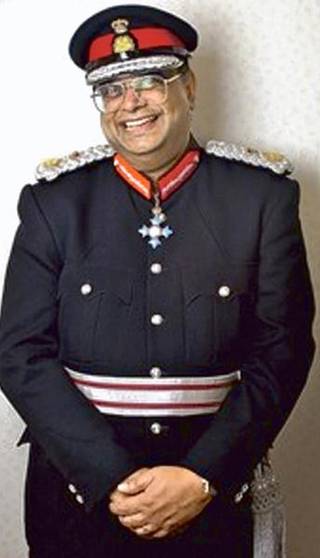What do you know about Campbellabad, I was asked the other day. Thinking I still knew the Political Geography I had once specialised in, “It’s a town in Pakistan,” I casually answered. Only to be told it’s a 300-year-old village in Tuticorin District. When my caller wanted to know whether what the locals had told him, that it was named after a Madras Governor, was correct, I was a little more careful. “I think Governor Campbell was some time later but let me check,” I hesitantly answered.
So achecking I went. And found Sir Archibald Campbell was Governor from 1786 to 1789, not quite 300 years ago. But I also found that there was another Archibald Campbell, a Madras Civilian from 1896 to 1937. He has been involved with the raising of the Mettur Dam (1925-934), retired as Chief Secretary and had served on the Boards of Revenue and Irrigation. He was more likely to have had something to do with land settlement for which the Muslim settlers could have named their new village after him. But that was just 100 years ago.
Later that day, who should I bump into but Civilian Campbell — or at least a bust of him in the 1901 banqueting hall of the Freemasons of Madras. He had been an ardent Freemason and started the Sir Arthur Campbell Lodge in Madras in 1930. This was the first Lodge where both Europeans and Indians could be members, on condition each spent at least six months a year in the others’ country (Miscellany, March 11, 2013).
While the bust and I looked each other in the eye, the voices swirling around us talked of the August celebration of 300 years of English Freemasonry with the consecration of the first Grand Lodge of the English Order in London. There was that number again, but this time the records showed the date was indeed 1717. Thirty-five years later, the Grand Lodge of Madras was consecrated. From then on, till the British left India, virtually every British official who was anyone in Madras was a Freemason, it would seem.
Two winners of honours
Two residents of Madras many decades ago whom I met recently were on quick visits to the city. To me the link between them were the honours they’d won, rather more distinguished and national in the case of one, rather more local in the case of the other. But both were greeted with the same warmth and enthusiasm by their former colleagues on the occasion of the 150th year celebrations of their respective affiliations.
It was while visiting his old school, Lawrence of
Lovedale, as a distinguished guest that Paul Sabapathy from Birmingham heard that he had been honoured for the third time by the Queen of England. An OBE in 1995 for urban regeneration, a CBE in 2004 for his contribution to business and higher education was being followed by a CVO (Companion of the Royal Victorian Order) for his services as Lord Lieutenant of the West Midlands.
As Lord Lieutenant, he was the Queen’s personal representative in the area from 2007 to 2015. It could well have been a knighthood if an email of his had not been leaked. In it, after a visit to the Pakistan consulate in the city, he was critical of the Pakistani community of Birmingham. Apologising, then stepping down was not enough.
Sabapathy, who went to Birmingham 53 years ago, soon after graduating from Madras Christian College, had a rather remarkable record in Britain. He was the first non-white to be a Lord Lieutenant (a 550-year-old institution), chairman of a British University (Birmingham City U), and a President of the Walsall Chamber of Commerce.
Unlike Sabapathy, Demitrius Sarandis was no public figure except in the small world of rowing in India. And in the even smaller world of the Madras Boat Club (MBC) he was welcomed for all he had achieved when he was a member (1958-1962).
Sarandis, from Greece, came out as a 22-year-old to Madras in 1957 to monitor the machinery that his company in the UK had supplied to the South India Flour Mills. While first living in that legendary chummery Chesney Hall, and then closer to the Club, he established an enviable record becoming the MBC’s Captain of Boats within three years. He’d never rowed in his life till a fellow resident at the chummery made him a member of the Boat Club. There, some thought him too small, others, seeing his scanty hair and luxuriant moustache, thought him more aged than he was and too old (35) to row successfully. But taught by the boat boys, he rowed competitively for the first time in 1959. Beating KR Ramachandran, reckoned till then the best Club sculler, Sarandis went on to team with him and win the Pairs too. In three years, his trophy cupboard was full. But then, faced with visa problems, he had to go back — and greater honours were not to be his.
The chronicler of Madras that is Chennai tells stories of people, places and events from the years gone by and, sometimes, from today
source: http://www.thehindu.com / The Hindu / Home> Madras Miscellany> Society / by S. Muthiah / July 31st, 2017


